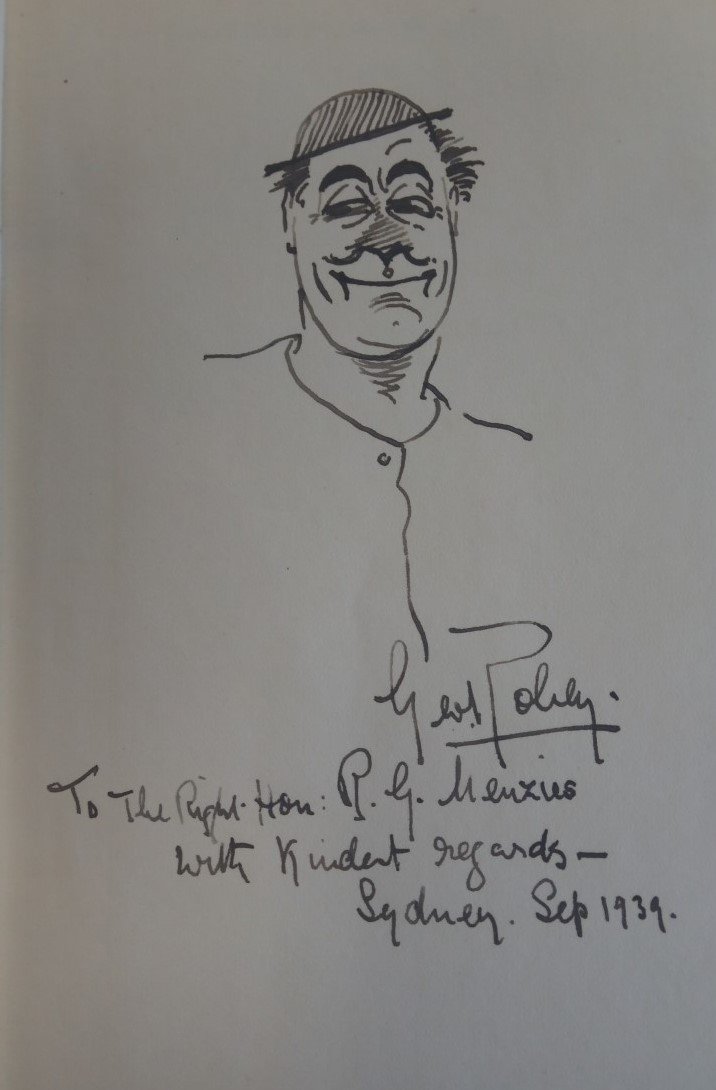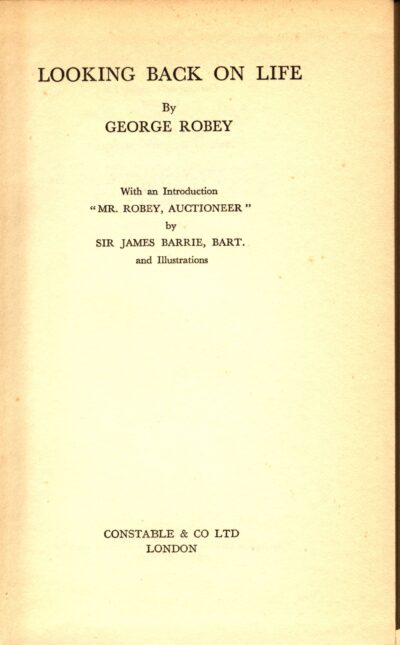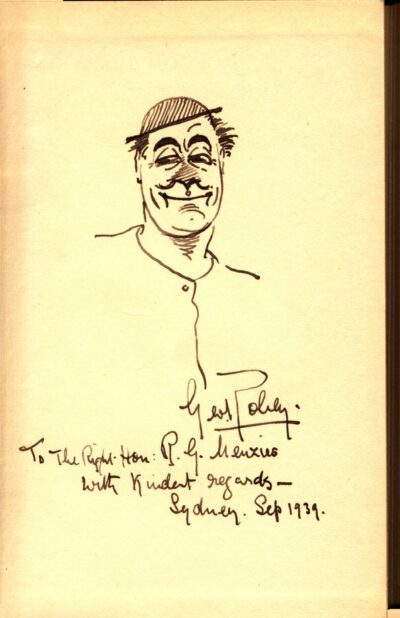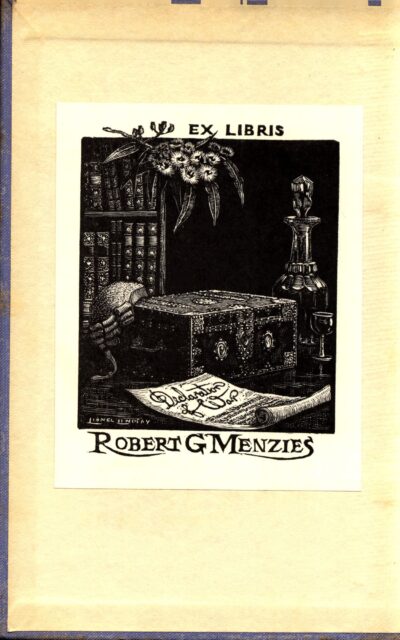George Robey, Looking Back on Life (1933)
George Edward Wade, who went by the stage name George Robey, was an English comedian who became known as one of the greatest music hall performers of the late 19th and early 20th centuries. Dubbed the ‘Prime Minister of Mirth’, Robey began appearing on stage when he was just 21 and carved out a career that would last from the beginning of the 1890s all the way up until the 1950s, encompassing the birth of film and radio. He was best known for his extravagant characterisations, precise diction, and comic timing.
On stage Robey played numerous characters, the most famous being a collarless cleric with a red nose, startled and heavy black eyebrows, an indignant stare, and a ribald smile. There was also a pantomime Dame ‘bonneted and bridling, at once grotesque and genial, creating out of a termagant’s tantrums a fountain of geniality’. During the First World War Robey conducted musical revues to entertain the troops just returned from the front. The most popular show was ‘The Bing Boys Are Her’ featuring the hit song ‘If you were the only girl in the world’ – which he sang as a duet with actress Violet Loraine.
Looking Back on Life was Robey’s autobiography, and though he was certainly old enough to write one its title was somewhat premature considering how much of Robey’s career lay ahead of him at the time of publication. The book seems to be partly fictionalised, or at least full of tall tales. For example, Robey claimed to have failed in his studies at Cambridge, disappointing his father and forcing him to go out and make a way for himself on his own, but there is no evidence that he was ever enrolled at that university.
Robey was on a tour of Australia, and halfway through a near sell-out 5 week run at the Tivoli Theatre in Sydney, when the Second World War broke out in early September 1939. Though the comedian turned 70 while he was here, he had lost none of his comic edge, and the Smith’s Weekly condemned his popular act as being ‘indefensibly crude’. Before coming out to Australia, Robey had made some sarcastic comments about Hitler being an ‘inspiration’ for Britain, which were reported out of context to suggest that he was a fascist sympathiser. Robey went out of his way to inform The Australian Jewish News that he was nothing of the sort, and that he had even given a benefit concert for Jewish refugees. After war broke out, he would be involved in fundraising efforts, first in Australia and then continuing when he returned home.
Menzies’s copy of Looking Back on Life is fascinating because of the timing of the gift. It has an inscription from Robey dated September 1939 and includes a doodled self-portrait. One can only imagine that it was an attempt on the part of the comedian to lift the Prime Minister’s spirits in the darkest of times. Robey’s own tour is exemplary of how fast events unfolded in the lead up to the conflict and how unready Australians were for their world to be turned upside down by it. Indeed, during the so-called ‘phoney-war’ which preceded the Nazi’s main westward thrust, Menzies had issues convincing the Australian public to take the threat posed by the war seriously and to make the necessary sacrifices for it. This was a situation to which Robey attested, as his run at the Tivoli was scarcely interrupted.
You might also like...
Sign up to our newsletter
Sign up for our monthly newsletter to hear the latest news and receive information about upcoming events.





